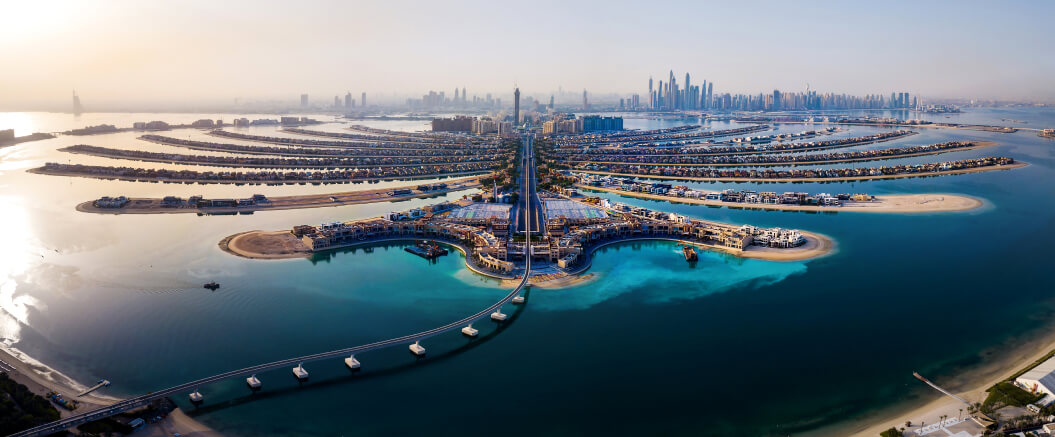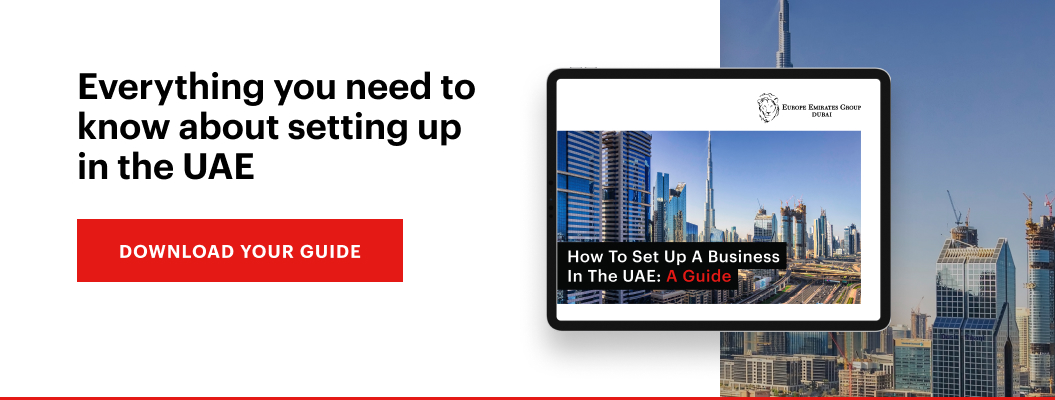DIFC Company Regulations and Benefits

What are the regulations for companies in the DIFC Free Zone? For firms in banking, capital markets, Islamic Finance, and a wealth of other niche markets within financial services, this financial hub in the Middle East is the home for their Dubai company formation solution. If you’re evaluating whether DIFC company formation is right for you, we have what you need to know to help you along in your decision-making process.
But first, what is the Dubai International Financial Centre?
The Dubai International Financial Centre, or DIFC, is one of 45 Free Zones in the United Arab Emirates. It commenced operations in 2004 and was ranked number eight in the Global Financial Centres Index in 2019, making it a top ten financial centre. It’s the leading financial hub for the Middle East, South Asia and Africa region (or MEASA), connecting these regions to other parts of the world through Dubai. It’s home to 2,400 enterprises with active registration and 25,600 professionals, making it the most significant financial ecosystem in the region. The DIFC Companies Law regulates the operations of the Free Zone.
Why types of licences and corporate structures are available?
There are two types of company licence classes that you can employ at the DIFC for company formation:
- Regulated Licence: A regulated licence class covers all activities in banking and finance that are under the support and regulation of the Dubai Financial Services Authority (DFSA).
- Non-Regulated Licence: This licence class is for any business not involved in finance or banking. This licence will cover establishments like hotels or academic institutions. The DIFC has significant retail space that would fall under the purview of the Non-Regulated Licence.
Why should you pursue DIFC company formation?
Numerous perks stem from company formation in the DIFC just like with other Free Zones, such as full foreign ownership, the ability to repatriate all profits and capitals to your home country and no taxation on your income or profits. However, some unique components make the DIFC stand out.
The regulatory authority, the DFSA, cooperates with other counterpart regulatory agencies around the world, ensuring that your firm meets the requirements for full compliance. The legal and regulatory processes also have full international acceptance. Plus, the DIFC operates under best practices using the utmost level of transparency.
The DIFC stands out for some unique features within the Free Zone. What are they?
The DIFC Courts
The DIFC Courts were established in the same year as the Free Zone. In contrast to the onshore legal system in the UAE that uses civil law, the DIFC offers a Common Law judiciary (the UK and the US have a Common Law system) for commercial and civil matters. The court proceedings are in English, in contrast to Arabic in local courts, and are available to firms regardless of whether they are a DIFC-registered firm or not. There are two levels of courts, the Court of First Instance and the Court of Appeal. The DIFC Courts have signed many treaties and Memorandums of Understanding (MOA) to make it easier to enforce its judgments with other legal systems across the UAE, abroad and the wider GCC region.
The DIFC also has a court of arbitration, the DIFC LCIA Arbitration Centre that uses a set of regulations modelled on the London Courts of International Arbitration’s long-established rules. The DIFC LCIA operates under a strategic partnership between the LCIA and the DIFC.
The DIFC Wills Centre
The DIFC Wills Centre is a joint venture between the DIFC Dispute Resolution Authority and the Dubai government. It allows non-Muslim expatriates to pass on their assets in the way they stipulate in their wills in their home country. This detail is fundamental because, in the event of an untimely passing, the absence of a will implies that the distribution of assets falls under Sharia Law that could go against the desires of the deceased. The DIFC offers an array of services for legacy planning, and a new set of changes have increased the scope of their offerings.
A global financial exchange
The DIFC also houses a stock market, the Nasdaq Dubai international stock exchange. The Nasdaq Dubai index has primary and secondary listings for equity and debt instruments. It offers companies in the region the ability to go public without having to go abroad, serving as a regional hub. It operates under the auspices of the Dubai Financial Services Authority (DFSA) to ensure the optimal level of compliance.
Are you ready to begin your journey at the Dubai International Financial Centre?
If you’re ready to pursue DIFC company formation and would like further guidance regarding DIFC company regulations, don’t look any further. Our Free Zone experts at Europe Emirates Group are ready to offer you the personalised service that only a professional services firm can provide. If you would like to schedule your initial consultation, don’t hesitate to contact us today.
Written by
Adrian Oton

CEO, Europe Emirates Group
